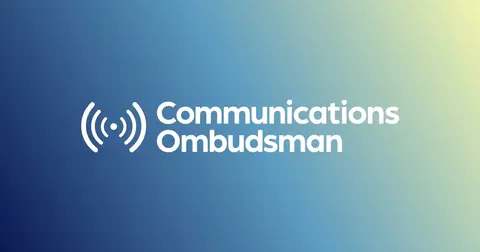Ofcom update: Broadband speeds from 1 March 2019

Residential and business customers purchasing broadband from 1 March 2019 are set to benefit from a revision of Ofcom codes of practice - but it’s not compulsory for providers to sign up.
Residential and business customers purchasing broadband from 1 March 2019 are set to benefit from a revision of Ofcom codes of practice - but it’s not compulsory for providers to sign up.
Ofcom has updated the codes so that customers purchasing broadband will have clearer information upfront relating to broadband speeds, plus greater protection if the speed they receive is below a minimum guaranteed level.
Broadband purchases before 1 March 2019 are subject to the previous versions (October 2015 for residential customers and January 2016 for business customers).
Which providers have signed up?
The codes are voluntary and not all providers have signed up to the new conditions. Signatories to the new codes of practice are:
- BT
- Daisy
- EE
- KCOM (Hull area)
- Lothian Broadband
- Plusnet
- Sky
- TalkTalk
- Virgin Media
- XLN
What’s changed?
The existing codes set out a number of commitments to help customers shop around with confidence. For example, customers buying copper-based broadband are given an estimated speed range at the point of sale and a minimum speed in their contract.
Consumers then have the right to exit penalty-free if their speed regularly falls below the minimum level. However, there are several limitations to the current codes, including that they do not apply equally to all technologies and that they do not capture the effect of peak time congestion.
The three main changes are as follows:
More realistic speed estimates at point of sale
Speed estimates given at the point of sale should reflect the speeds customers are likely to experience at peak times. Peak times will be measured as 8 - 10pm for residential customers and 12 - 2pm for business services.
Ensuring customers benefit regardless of their broadband technology
The existing codes only apply in full to broadband services provided over certain networks such as copper and part-fibre. By moving to an approach that measures speeds at peak time, it’s possible for the codes to apply in full to all access technologies. Under the new codes, cable and fibre to the premise (FTTP) providers will also be subject to the new speed guarantee conditions.
Right to exit bundled products
The right to exit will be extended to apply to bundled products, such as landline services on the same line, or pay TV services purchased at the same time as a broadband service. A new 30 day limit will apply for providers to improve speeds before they must offer the right to exit. Providers will also be required to make information about the right to exit more prominent.
Further information
Read the full press release on the Ofcom website
Updated versions of the codes are available on Ofcom’s website: Residential and Business.
More articles

Complaints About Telecom Providers Increase 28% in 2024

Communications Ombudsman welcomes Ofcom’s proposal to shorten the timeline in which consumers can access Alternative Dispute Resolution

What is an Ombudsman?

Communications Ombudsman releases updated complaints data for 2024
Ready to raise your dispute with us?
